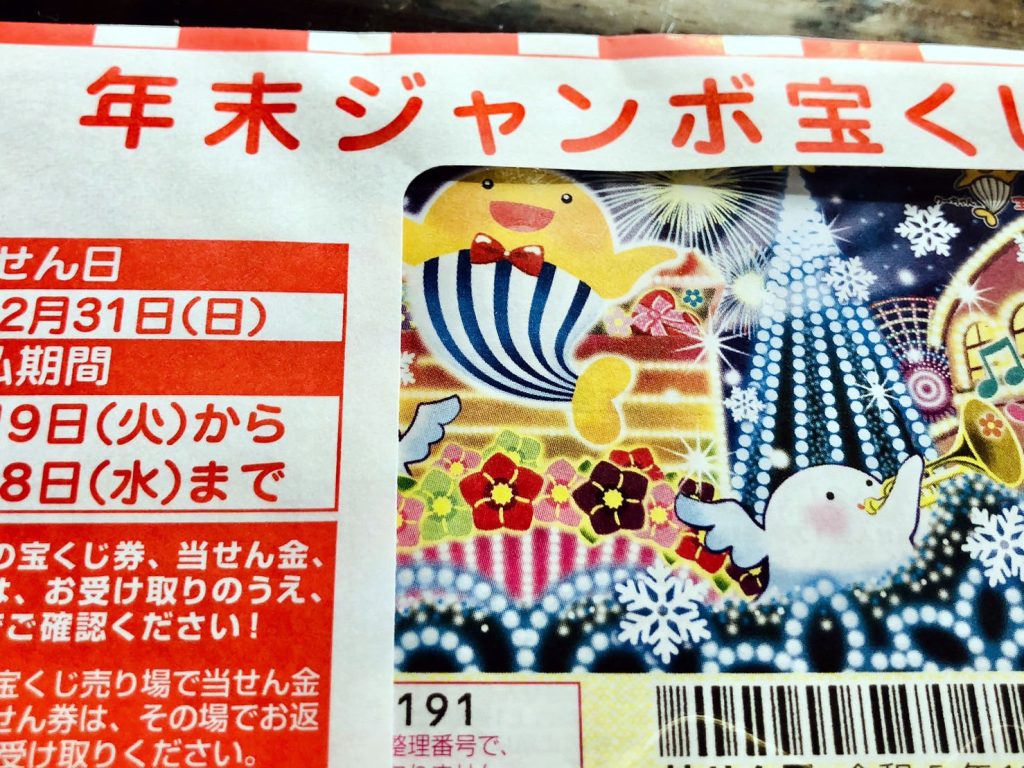
I attempted to compose a senryu-style poem about the lottery. When I turned on the TV, every channel had flashy commercials for the year-end jumbo lottery. It has truly become a year-end tradition. The origin of the lottery dates back to the early Edo period, said to be the “富会 (Tomie)” at Takian Temple in Minoh City, Osaka. Originally, winning this lottery meant receiving a charm, not money. After then, it evolved into a money-based lottery, but due to its strong gambling nature, it was prohibited multiple times. Interestingly, public lotteries didn’t exist until after World War II, when they were introduced for fundraising during the post-war reconstruction. The “Jumbo” lottery, starting with the 1979 “Summer Jumbo Lottery” and “Year-End Jumbo Lottery,” saw increasing prize amounts. This year’s prize money is 1 billion yen, including the first prize winning number and the prizes for the numbers before and after that number. By the way, the world’s highest lottery prize was 279 billion yen, won last year in the American “Powerball.” Even Shohei Ohtani would be surprised.
宝くじを川柳風に詠んでみました。テレビを捻ったら、どのテレビ局も年末ジャンボ宝くじの派手なコマーシャルです。すっかり年末の風物詩になりました。そもそも宝くじの起こりは、江戸時代初期、大阪府箕面市にある瀧安寺の「富会(とみえ)」だと言われています。このくじの当たりは金銭ではなくお守りでした。それがやがて金銭が掛かった宝くじになりますが、射幸性が強いと言う事で、何度も禁止になり、じつは第二次世界大戦までは、公の宝くじはありませんでした。第二次世界大戦後は、戦後復興の資金作りの為、様々な名目で宝くじが売り出されました。「ジャンボ」と名打った宝くじは、1979年の「サマージャンボ宝くじ」と「年末ジャンボ宝くじ」が始まりです。賞金額もどんどん高額になり、今年の賞金額は、1等・前後賞合わせて10億円です。因みに、世界最高の宝くじな当選金額は、昨年アメリカの「パワーボール」で出た2,790億円です。大谷くんもビックリですね。
